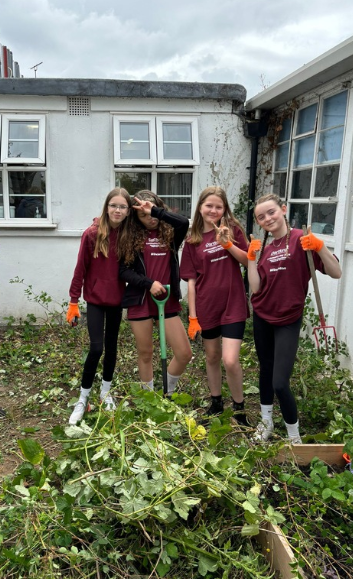Teaching and learning: Sustainability
At DSTC we recognise that children and young people are worried about climate change and want to know more about: the impact it is having now and how it will impact their future lives. We have a joint responsibility for preparing children and young people for the challenges and opportunities they will face in a changing world with the appropriate knowledge, skills and pastoral care.
As a school, we have four strategic aims:
- To achieve excellence in education and skills for a changing world: preparing all young people for a world impacted by climate change through learning and practical experience.
- To work towards net zero: reducing direct and indirect emissions from education and care buildings, driving innovation to meet legislative targets and providing opportunities for children and young people to engage practically in the transition to net zero.
- To be resilient to climate change: adapting our education and care, buildings and systems to prepare for the effects of climate change.
- To create a better environment for future generations: enhancing biodiversity, improving air quality and increasing access to, and connection with, nature in and around the school.
Climate education
We know that young people are eager to create a greener, sustainable world and tackle both the causes and impact of climate change. At DSTC we will empower all young people to be global citizens, through a better understanding of climate change, developed through our academic and extra-curricular lessons.
Academically we cover a wide selection of topics across different subject areas. Departments are encouraged to make links to sustainable development and where appropriate teach topics such as biodiversity, energy, global citizenship, healthy living, recycling, marine life, and transportation. These are topics that are essential for the future development of our planet. We have recently introduced the Environmental Science A Level which enables students to see how we rely on environmental resources and how we can develop sustainable lifestyles.


We provide opportunities for a greater connection to nature through our Eco Project and a number of educational visitswhich encourage students to take part in educational outdoor activities that are designed to improve environmental awareness.
We also provide practical opportunities for our students to participate in activities that increase their climate resilience, knowledge of how to reduce carbon impact and enhance biodiversity which enables them to translate knowledge into positive action to improve their local communities, their country and the planet.
Our extra-curricular programme provides a wealth of learning opportunities, practical activities and clubs which allow our students to bring their climate learning to life. We also have a long-standing relationship with 'Generation C' who support companies as they develop their green talent pipelines through empowering students to make informed decisions about who they can become and provide them with direction and a structured learning pathway into future green careers.
We have developed a Sustainability Action plan which encompasses the following areas:
- Environmental education - to educate the School community about key environmental issues and the climate crisis.
- Biodiversity and the Natural Environment - to improve the quality of our green spaces and biodiversity by limiting the negative impacts (and, where possible, by increasing positive impacts) on our natural environment
- Buildings and Construction - to improve the environmental impact of our construction and refurbishment projects
- Community Engagement - to engage effectively with the local community to achieve positive environmental action
- Energy and Carbon Management - to reduce our carbon emissions whilst supporting the School’s plans for the investment in and modernisation of the buildings


